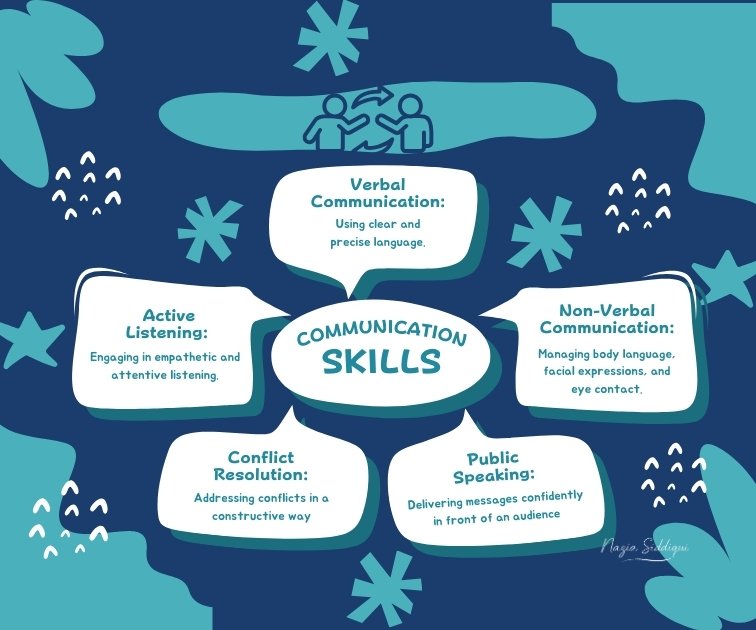Small shifts. Big impact. Begin your journey today.
Everyday English Conversation: 7 Smart Tips For Success
Ever left a conversation replaying it in your head and wishing you’d expressed yourself more clearly? Or maybe you stayed silent because you couldn’t find the right words fast enough? If yes, you’re not alone. Millions of learners face the same struggle: they understand English but freeze when it’s time to use it in real life.
The truth is, fluency is not about knowing thousands of complicated words. It’s about being able to use simple words and phrases comfortably in everyday English conversation. That’s what makes you sound natural, confident, and engaging.
In this guide, I’ll share 7 smart, practical tips to transform your English conversations. You’ll learn how to practice daily, avoid common mistakes, and use real-life examples. Whether you’re a beginner, a student, or a professional, these strategies will help you speak with confidence.

Why Everyday English Conversation Matters
English isn’t just for exams, job interviews, or classrooms. It’s a living, breathing skill you use every day — chatting with a friend, ordering food, talking at work, or even greeting a stranger.
Here’s why mastering everyday English conversation is life-changing:
- Confidence booster: Speaking fluently makes you feel at ease in social and professional situations.
- Connection builder: You can connect with people worldwide, from classmates to colleagues to travel buddies.
- Career advantage: Employers value people who can express themselves clearly in meetings, presentations, and teamwork.
- Personal freedom: Imagine traveling to another country and ordering food or asking for directions without hesitation.
Think about it: even if you know advanced grammar, what good is it if you can’t keep a natural, flowing conversation? Everyday fluency is the bridge between knowledge and real communication.
Tip 1: Listen More Than You Speak
If you want to speak well, start by listening well. Many learners rush to talk but forget that listening is the foundation of speaking. Why? Because when you listen carefully, you:
- Pick up natural pronunciation and intonation.
- Learn ready-to-use phrases, not just words.
- Understand cultural expressions and humor.
How To Practice Listening Daily
- Podcasts & Audiobooks: Choose topics you enjoy (travel, stories, motivation). Even 15 minutes a day helps.
- Movies & TV shows: First watch without subtitles, then re-watch with subtitles.
- YouTube Vlogs: Search “American English everyday conversations” or “English conversation everyday” and repeat what you hear.
Real Example
Instead of learning the single word hungry, you might hear:
- “I’m starving.”
- “I could eat a horse.”
- “I’m craving pizza.”
These are the expressions that make your conversations sound alive.
Tip 2: Start Small With Daily Practice
Think of fluency like exercise. If you hit the gym once a month, you won’t get fit. But if you do a little every day, the results are powerful.
That’s exactly how everyday English conversation practice works.
Mini-Practice Ideas
- Greet family members in English: “Good morning, how did you sleep?”
- Narrate your day: “I’m making tea right now… later I’ll call my friend.”
- Talk to yourself in front of a mirror.
For Beginners
If you’re just starting, keep it super simple. Use phrases like:
- “I’m fine, thank you.”
- “What’s for dinner?”
- “I need some water.”
This type of everyday English conversation for beginners builds comfort and reduces fear.
Tip 3: Learn Phrases, Not Just Words
Memorizing single words is like collecting puzzle pieces without knowing how they fit. Fluency comes from phrases, expressions, and chunks of language.
Why Phrases Work Better
- You don’t waste time building sentences word by word.
- Phrases carry emotion and tone.
- They make you sound more natural.
Everyday Phrases To Try
- Instead of just “Hello” → “How’s it going?”
- Instead of just “Goodbye” → “Catch you later!”
- Instead of “Tired” → “I’m worn out.”
- Instead of “Happy” → “I’m over the moon!”
Here’s A Quick Table To Help:
| Word | Everyday English Conversation Phrase |
| Thanks | Thanks a lot / Thanks for helping me out |
| Busy | I’ve got a packed schedule today |
| Easy | It’s a piece of cake |
| Hard | This is driving me crazy |
📌 Tip: Study 1000 English phrases most used in everyday conversation — they’re your fluency toolkit.
Tip 4: Ask Smart Questions
Conversations aren’t monologues. If you only give short answers, people lose interest. The secret? Ask questions that keep the talk flowing.
Smart Question Strategy
- Avoid Yes/No answers. Add details.
- “Do you like coffee?” → “Yes, I love cappuccino. What about you?”
- Use open-ended questions.
- “What’s your favorite movie and why?”
- “How do you usually spend weekends?”
Conversation Example
- A: “How was your weekend?”
- B: “It was fun, I went hiking. Have you ever tried hiking?”
See how adding a question keeps the conversation alive? That’s the power of everyday English conversation questions.
Tip 5: Practice With Real-Life Examples
Theories are useless without practice. That’s why everyday English conversation examples are so valuable.
At The Grocery Store
- A: “Hi, could you please tell me where the milk section is?”
- B: “It’s in aisle three.”
- A: “Great, thanks a lot!”
With A Friend
- A: “Hey, what are you up to this weekend?”
- B: “Not much, maybe catching a movie. Want to join?”
At Work
- A: “Can we reschedule the meeting?”
- B: “Sure, how about tomorrow at 10?”
Practicing these dialogues prepares you for real moments.

Tip 6: Make It Fun With Creative Practice
If English feels like a boring subject, you’ll avoid it. But if you make it fun, you’ll stick with it.
Fun Practice Ideas
- Apps & Games: Use apps with 100 short English conversation dialogues.
- Role-play challenges: Pretend you’re at a restaurant, airport, or interview with a friend.
Remember, the more enjoyable the process, the faster you’ll improve.
Tip 7: Be Confident, Not Perfect
This might be the most important tip of all. Many learners know enough English but let fear silence them.
Truths About Fluency
- Native speakers make mistakes too.
- People care more about your message than your grammar.
- Confidence is more attractive than perfection.
Example
Instead of worrying about saying “He go” instead of “He goes”, just keep talking. Most people won’t even notice.
Celebrate progress, not perfection. Every conversation is a victory.
Common Mistakes To Avoid In Everyday English Conversation
Even motivated learners fall into traps. Here are some to avoid:
- Translating word for word from your mother tongue.
- Don’t say “Open the light.” The natural way is “Turn on the light.”
- Overusing fillers like “umm” and “you know.”
- Memorizing long speeches instead of learning flexible phrases.
- Fear of mistakes → silence → missed practice opportunities.
Bonus: Extra Practice Strategies
Want to accelerate your progress? Try these bonus strategies:
- Journaling In English: Write 5–10 sentences daily about your day.
- Shadowing Technique: Listen to a native speaker and repeat word for word.
- Join speaking Clubs: Many online communities practice conversation English speaking everyday.
- Flashcards: Create cards for phrases instead of words.
Mini Case Study: The 90-Day Transformation
Meet Ali, a beginner from Pakistan. He could read English but froze in conversation. Here’s what he did:
- Practiced daily conversation in English at home with his younger brother.
- Listened to podcasts during bus rides.
- Used everyday English conversation examples to role-play.
- Focused on phrases instead of grammar.
After 90 days, he confidently spoke to a tourist, guided him around, and even joked in English. His secret? Consistency + smart practice.
Frequently Asked Questions
Q1: How can I improve everyday English conversation quickly?
Start small: listen daily, practice short dialogues, and focus on phrases.
Q2: What are the best resources for everyday English conversation practice?
Apps, YouTube channels, podcasts, and resources like 100 short English conversation examples.
Q3: Is everyday English conversation for beginners different from advanced learners?
Yes. Beginners should focus on simple daily phrases; advanced learners should refine tone, idioms, and cultural nuances.
Q4: How can students improve everyday English conversation?
By practicing with peers, joining English clubs, and role-playing with everyday English conversation examples.
Q5: Can I practice daily conversation in English at home alone?
Absolutely. Narrate your day, record yourself, or practice with a mirror.
Q6: What are some common everyday English conversation questions?
- “How’s your day going?”
- “What do you usually do after work?”
- “What’s your favorite food/movie?”
Q7: What role do phrases play in fluency?
Learning 1000 English phrases most used in everyday conversation makes you fluent faster than memorizing single words.
Q8: What if I forget words mid-conversation?
Paraphrase! Instead of “umbrella,” say “the thing we use in rain.” People will still understand.
Final Thoughts
Fluency isn’t a magic gift—it’s a skill anyone can build. If you apply these 7 smart tips, you’ll notice change faster than you imagine.
- Listen actively.
- Practice daily at home.
- Learn phrases, not just words.
- Ask smart questions.
- Use real-life examples.
- Make practice fun.
- Be confident, not perfect.
Remember: English isn’t about flawless grammar. It’s about connection, confidence, and expression. Start today. Even one small conversation is progress.
At Nazia Siddiqui, we believe learning English opens doors to opportunity, confidence, and growth. So take the first step today, and let your everyday English conversation skills transform your life.


